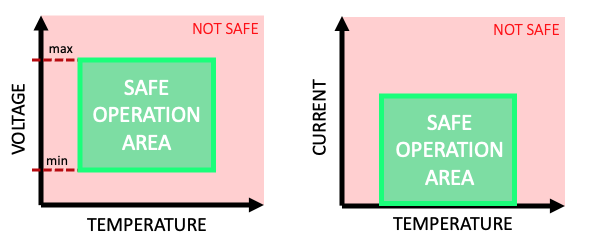Temperature is a critical factor affecting the safety, performance, and lifespan of lithium batteries. If a battery overheats, its internal temperature, pressure, and other parameters can become unstable, potentially leading to serious consequences such as Thermal Runaway. Battery Management System (BMS), by comprehensively monitoring and managing the temperature of each single battery or battery module, prolongs battery life and improves battery performance, while effectively preventing thermal runaway risks, therefore, guaranteeing the safety of lithium battery operation.
Ambient temperature refers to the surrounding environmental conditions where a Battery Management System (BMS) operates. Changes in ambient temperature significantly affect the performance and stability of lithium batteries:
High temperatures accelerate battery self-discharge, reduce charging efficiency, and shorten battery lifespan.
Low temperatures increase internal resistance, weakening power output capability.

When a lithium battery's temperature exceeds safe limits, its high energy density can cause a rapid temperature rise, potentially leading to thermal runaway. Thermal runaway involves a continuous increase in battery temperature and is often accompanied by severe consequences, including:
Heat and gas release, leading to potential explosions or fires.
Toxic emissions (e.g., sulfur dioxide), harm human health and pollute the environment.
Damage to equipment or complete failure, causing significant financial losses.
The lithium battery BMS ensures thermal stability by employing temperature monitoring and control strategies. Conventional systems rely on cooling methods, such as liquid or air cooling, to regulate temperature. Modern BMS solutions add predictive and adaptive capabilities:
Emergency response: When abnormal temperatures are detected, the BMS triggers immediate safety measures.
Predictive analytics: By analyzing historical data, the BMS forecasts temperature trends under various conditions, enabling proactive adjustments and warnings.
In Gerchamp's solution, the G-BMU collects real-time temperature data from individual cells and equalization circuits, transmitting data to the G-RCU and ultimately the G-SCU. The G-SCU serves as the intelligent management hub, analyzing temperature and other battery metrics. In abnormal temperature scenarios, the G-SCU issues precise instructions to other modules, ensuring effective thermal management and mitigating the risk of thermal runaway. Therefore, our comprehensive system guarantees the safe, efficient, and reliable operation of lithium batteries in varying environments.